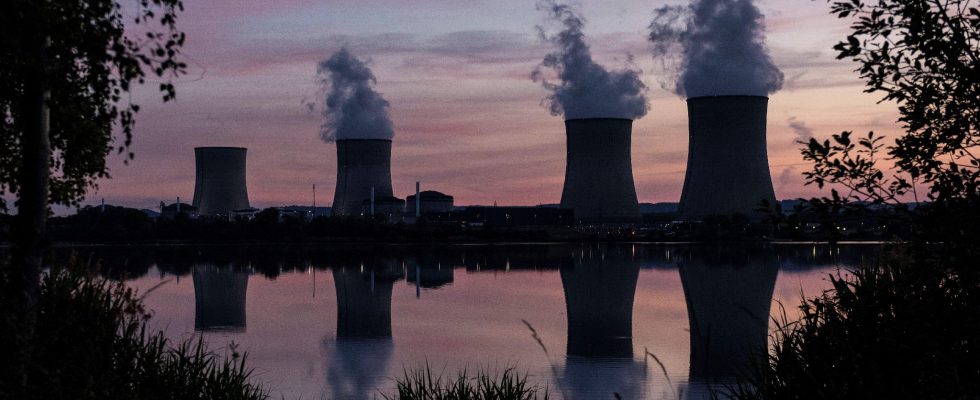After more than six months of work and 88 hearings, in a context of crisis in the energy sector, the report of the parliamentary commission of inquiry “aiming to establish the reasons for France’s loss of sovereignty and energy independence” has was released this Thursday, April 6. Its conclusions are the trial of what it describes as “slow drift” and “political rambling, often unconscious and inconsequential” since the mid-1990s.
“We therefore find ourselves today facing an unprecedented energy wall”, thus estimate the rapporteur for the majority Antoine Armand and his colleague LR, the president of the commission Raphaël Schellenberger, after 150 hours of work and questions to those responsible for the choices French energy companies of the last three decades. Since November, they have in turn interviewed experts, scientists, business and regulatory body leaders, senior officials as well as former ministers, and even two former Presidents of the Republics, Nicolas Sarkozy and Francois Hollande.
Six Big Past Mistakes
The report singles out six major past mistakes. “Over the past thirty years, our energy mix has finally changed little and its weaknesses have increased”, points out the document. He also denounces “multiple dependencies on imported fossil fuels (gas and oil, editor’s note) which are becoming scarce and will be exhausted within a few decades”. He also criticizes the “very weak development of the means of controlling demand” consisting in consuming less.
The “electricity consumption forecasts requested from RTE”, the company managing the high-voltage network, only cover “the short or medium term, unrelated to the well-known climate objectives, nor with the long time required by the industry. of the energy sector,” the authors also write.
The closure of Fessenheim criticized
The report also devotes several pages to the decried closure of the Fessenheim nuclear power plant, which they consider to be a “symbolic element”, a decision taken for electoral purposes “devoid of energy logic”. “The shutdown of the Fessenheim plant, which was not inevitable even in 2017”, is one of the decisions which “de facto continued to weaken the nuclear industry”, they write.
The 2015 “energy transition for green growth” law also capped nuclear production at 63.2 GW: “This measure is also a political and symbolic decision taken outside of any energy logic”, indicate the reporters.
This decision which, one can read, made France take “an unnecessary risk for the security of the country’s energy supply” had, according to the report, one objective: “to close a power plant”, in this case that of Fessenheim. The choice of the Alsatian power station is explained by “another promise made by the candidate François Hollande, which also appeared in the political agreement prepared by Martine Aubry and Cécile Duflot in 2011”.
30 recommendations
After the acknowledgment of failure, the 400-page report also formulates 30 proposals, “for the next 30 years”. They are largely based on the nuclear revival, also announced by the executive, but also in favor of hydroelectricity and the development of heating networks.
Among them, the commission suggests “ask RTE to change its supply security criterion in the short term, and launch an overhaul of our overall supply security doctrine under its responsibility”. It also proposes “to adopt a common and sustainable European position, to define nuclear energy as a low-carbon and strategic energy, which should be supported in the same way as renewable energies”. One of them also recommends “launch calls for tenders for the 50 offshore wind farms as soon as possible, make their installation binding and secure the financing and commitment of the project leader”.
The authors of the report also advocate a “30-year climate energy programming law with climate, energy and industrial objectives as well as the related means, which will be closely and regularly monitored by Parliament and expert institutions” . They also ask for “increased transparency” and better anticipation on the part of EDF, while the nuclear fleet is weakened by phenomena of corrosion of the piping of certain reactors and must pass the milestone of 50 years of age.
